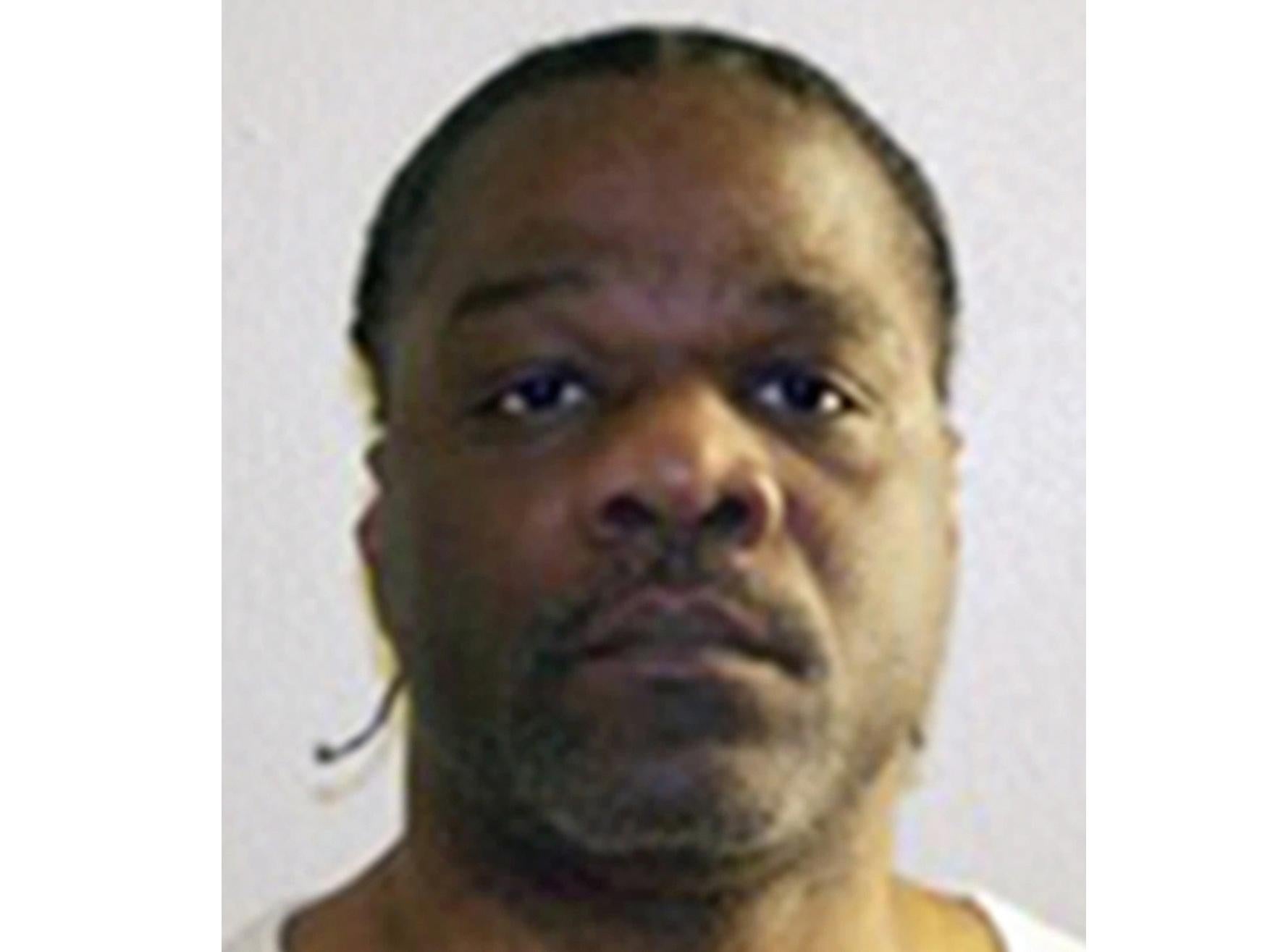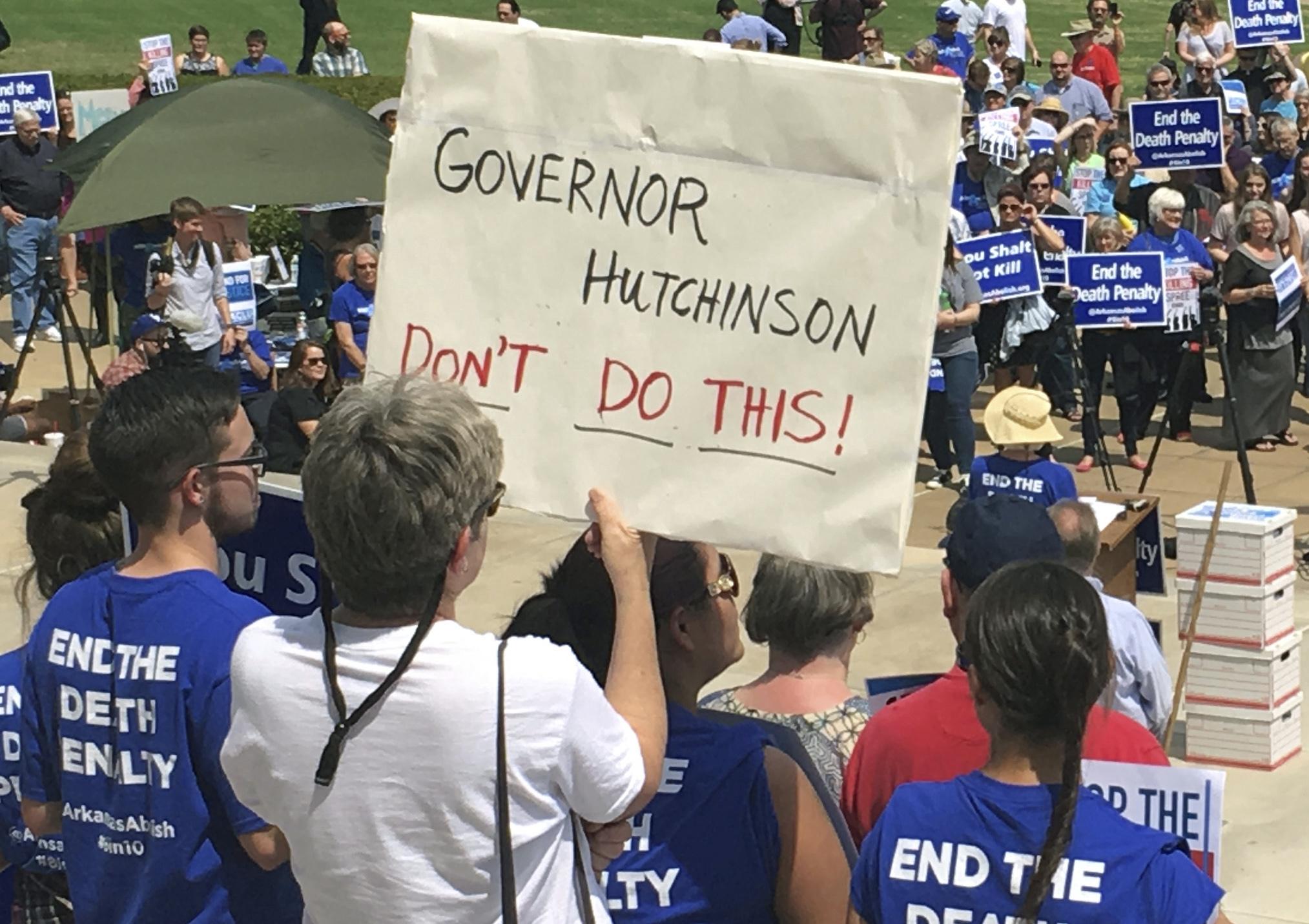Arkansas executes first death row prisoner in 12 years - minutes before warrant due to expire
Ledell Lee originally among eight inmates scheduled to be killed by lethal injection before legal challenge derailed plan

Your support helps us to tell the story
From reproductive rights to climate change to Big Tech, The Independent is on the ground when the story is developing. Whether it's investigating the financials of Elon Musk's pro-Trump PAC or producing our latest documentary, 'The A Word', which shines a light on the American women fighting for reproductive rights, we know how important it is to parse out the facts from the messaging.
At such a critical moment in US history, we need reporters on the ground. Your donation allows us to keep sending journalists to speak to both sides of the story.
The Independent is trusted by Americans across the entire political spectrum. And unlike many other quality news outlets, we choose not to lock Americans out of our reporting and analysis with paywalls. We believe quality journalism should be available to everyone, paid for by those who can afford it.
Your support makes all the difference.Arkansas has overcome a flurry of court challenges that derailed three other executions and put to death an inmate for the first time in nearly 12 years.
Ledell Lee's execution was among eight originally scheduled before a lethal injection drug expires on 30 April - a plan which would have been the country's most ambitious since the death penalty was restored in 1976.
Lee was pronounced dead at 11.56pm local time on Thursday, four minutes before his death warrant was due to expire.
The 51-year-old showed no signs of consciousness two minutes after the start of his execution, which began at 11.44pm.
With his arms extended, covered with a sheet, and his head and hands covered with leather straps, Lee made no final statement and showed no apparent signs of suffering during the execution.
“The governor knows the right thing was done tonight,” said JR Davis, a spokesman for Arkansas governor Asa Hutchinson, who scheduled the multiple executions.
“Justice was carried out.”
Lee was put on death row for the 1993 murder of his neighbour Debra Reese, whom he struck 36 times with a tyre tool her husband had given her for protection.
Lee was arrested less than an hour after the killing after spending some of the 300 dollars he had stolen from Mrs Reese.
The state originally set four double executions over an 11-day period in April. The eight executions would have been the most by a state in such a compressed period since the US Supreme Court reinstated the death penalty in 1976. The first three executions were cancelled because of court decisions.
“I pray this lawful execution helps bring closure for the Reese family,” Attorney General Leslie Rutledge said in a statement issued minutes after Lee's execution.
Two more inmates are set to die on Monday, and one on 27 April. Another inmate scheduled for execution next week has received a stay.
The US Supreme Court cleared the way for Lee's execution less than an hour before his death warrant was set to expire at midnight, rejecting a round of last-minute appeals the condemned inmate's lawyers had filed.
An earlier ruling from the state Supreme Court allowing officials to use a lethal injection drug that a supplier says was obtained by misleading the company cleared the way for Lee's execution.
“Arkansas' decision to rush through the execution of Mr Lee just because its supply of lethal drugs are expiring at the end of the month denied him the opportunity to conduct DNA testing that could have proven his innocence,” said Nina Morrison, senior staff lawyer with the Innocence Project, a non-profit legal organisation that helped represent Lee in his last appeals.

Arkansas dropped plans to execute a second inmate, Stacey Johnson, on the same day after the state Supreme Court said it would not reconsider his stay, which was issued so Johnson could seek more DNA tests in the hope of proving his innocence.
Justices on Thursday reversed an order by Pulaski County Circuit Judge Alice Gray that halted the use of vecuronium bromide, one of three drugs used in the state's lethal injection process, in any execution. McKesson Corp says the state obtained the drug under false pretences and that it wants nothing to do with executions.
McKesson said it was disappointed with the court's ruling.
“We believe we have done all we can do at this time to recover our product,” the company said in a statement.
Justices also denied an attempt by makers of midazolam and potassium chloride - the two other drugs in Arkansas' execution plan - to intervene in McKesson's fight over the vecuronium bromide.
The pharmaceutical companies say there is a public health risk if their drugs are diverted for use in executions, and that the state's possession of the drugs violates rules within their distribution networks.
The legal delays in the executions frustrated Governor Hutchinson. The state's elected prosecutors also criticised the roadblocks to the execution plans.
“Through the manipulation of the judicial system, these men continue to torment the victims' families in seeking, by any means, to avoid their just punishment,” the prosecutors said in a joint statement issued on Thursday.
The Arkansas Supreme Court said in a four-three ruling that it would not reconsider its decision to stay Johnson's execution. Ms Rutledge's office said the Attorney General would not appeal to the US Supreme Court over that case.
Lawyers for the state have complained that the inmates are filing court papers just to use up the time remaining on Arkansas' midazolam supply. Prisons director Wendy Kelley has said the state has no way to obtain more midazolam or vecuronium bromide. At one point in the proceedings before a federal judge last week, Arkansas Solicitor General Lee Rudofsky declared: “Enough is enough.”
Earlier in the evening, the Supreme Court ruled five-four on a previous batch of appeals with new justice Neil Gorsuch voting with the majority of five on the to deny the stay of execution sought by Lee and the other inmates.
Justice Stephen Breyer said in a dissent he was troubled by Arkansas' push to execute the inmates before its supply of midazolam expires.
“Apparently the reason the state decided to proceed with these eight executions is that the 'use by' date of the state's execution drug is about to expire... In my view, that factor, when considered as a determining factor separating those who live from those who die, is close to random,” he wrote.
Associated Press
Join our commenting forum
Join thought-provoking conversations, follow other Independent readers and see their replies
Comments